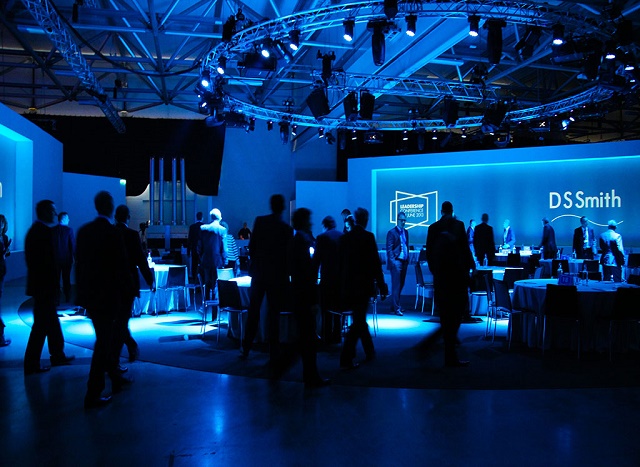How the UK ‘security’ Industry Fuels Human Rights Abuses Around the World Comment
Ideas, New in Ceasefire - Posted on Tuesday, March 10, 2015 18:45 - 1 Comment
By Andrew Smith

Farnborough International Venue & Events.
Security is something that affects us all, but you would be hard pushed to find a more secretive event than the annual Security & Policing conference. Journalists are barred, and, needless to say, so are those of us on the receiving end of security and policing policies. The organisers say that this is because the event showcases equipment that is “too sensitive to show in a more open environment.”
Unfortunately, the notionally ‘strict’ entry criteria has not prevented invitations being issued to delegations that represent some of most brutal and oppressive regimes in the world. The attendees list has not been released yet, but previous events have been attended by delegations from Saudi Arabia, Bahrain, UAE, Russia, Columbia, Qatar, Libya Algeria and others.
It’s not just standard policing equipment that will be on sale. The ‘security’ equipment being marketed is likely to include sniper rifles, crowd control equipment and surveillance technology. Far from promoting safety, the show will help to arm repressive regimes with exactly the kind of equipment that has been, and is being used, to suppress protests and silence opposition.
Over recent years UK equipment has been linked to crackdowns and human rights abuses in Hong Kong, Bahrain, Egypt and Kuwait. The only reason any of these allegations have been made public is due to the brave work of journalists and campaigners on the ground. These are only the examples that we know about. None of these revelations has led to any meaningful change in policy from the government, which has only been to happy to continue arming the regimes.
The UK Government’s own export licensing criteria is based on risk assessment. Plainly there are high risks, now and in the future, that this equipment might be used in all of these countries to suppress protesters who merely demand the democratic rights that we in the UK take for granted.
The links between the ‘security’ industry and domestic oppression have always been strong, and turning a blind eye to the blurred line is a central facet of UK arms export policy. The reasons for it are obvious; the global market for non-lethal weaponry is estimated to be worth $1.6 billion, with some estimates suggesting it will reach $7.2 billion by 2020.
An increasing number of arms companies are trying to capitalise on what is a growing market. Security & Policing will include some of the biggest in the world, such as BAE Systems, Thales, Finmeccanica and Heckler & Koch, and surveillance companies such as The Hacking Team.
These companies come to do business. Surveillance equipment producer Hidden Technology said that Security and Policing 2013 was “our busiest ever, with a blend of end users and budget holders that were actually able to commence the purchasing process at the event itself. We have already issued quotations to several potential customers.”
The event is sponsored by The Gamma Group, a surveillance company that sells monitoring centres for communications, technical surveillance and intrusion technology. The company tried to sell its ‘FinSpy’ surveillance technology to Egypt before the revolution and its spyware has since been discovered in a total of 25 countries, including Bahrain, Turkmenistan and Vietnam. It has been alleged that its equipment has even been used to continually monitor an Ethiopian political activist living in the UK, having left Ethiopia in 2009 due to “constant surveillance and harassment.”
However, it’s not just arms and surveillance equipment that is being sold to these regimes. It’s also political support. Security & Policing is organised by the Home Office, and the countries that take part do so, in part, because it strengthens their political links and it sends out the signal that the UK government supports what they are doing.
In its recent report the House of Commons Foreign Affairs Committee said that “Both the government and the opposition in Bahrain view UK defence sales as a signal of British support for the government.” Arms sales can never be apolitical acts, and this point stands for all of the authoritarian states that buy UK weapons.
Events like Security & Policing only strengthen the UK’s ties to these dictatorships and entrench the government’s role as a global arms dealer. They undermine the UK’s claims to be promoting human rights and strengthen the position of repressive regimes. Most importantly, they put weapons and surveillance equipment in the hands of abusive despots and send out the message that the human rights and democracy of oppressed people are of less importance than arms company profits.


[…] by PostNationalism [link] […]